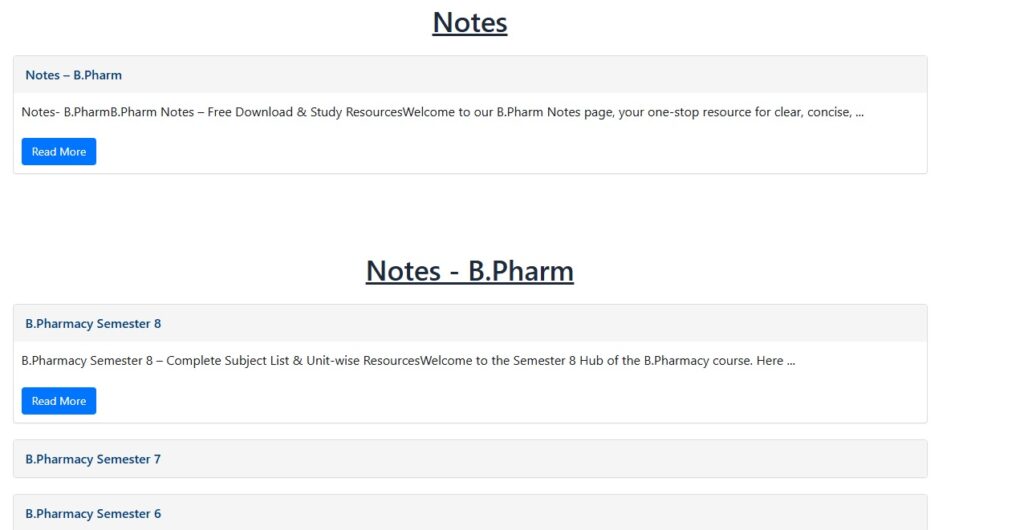Frequently Asked Questions about Bachelor of Pharmacy (B.Pharma)
1. What is the duration of the B.Pharma program?
- The Bachelor of Pharmacy (B.Pharma) program typically has a duration of 4 years, divided into 8 semesters. Each semester covers different subjects and practical components relevant to pharmacy.
2. What are the eligibility criteria for enrolling in a B.Pharma program?
- Candidates should have completed their 10+2 education with a focus on Physics, Chemistry, and Biology/Mathematics. Some institutions may also require students to pass an entrance exam.
3. What subjects are covered in the B.Pharma syllabus?
- The syllabus generally includes subjects such as:
- Human Anatomy and Physiology
- Pharmaceutics
- Pharmacology
- Pharmaceutical Chemistry
- Pharmacognosy
- Biopharmaceutics
- Pharmaceutical Biotechnology
4. What career opportunities are available after completing B.Pharma?
- Graduates can pursue various career paths, including:
- Community Pharmacist
- Hospital Pharmacist
- Pharmaceutical Sales Representative
- Quality Control Analyst
- Regulatory Affairs Specialist
- Research Scientist
- Teaching or Academia
5. Can I pursue higher studies after completing B.Pharma?
- Yes, graduates can pursue further studies such as M.Pharm (Master of Pharmacy), Pharm.D (Doctor of Pharmacy), or other related postgraduate courses. Many also opt for MBA programs for management roles in the pharmaceutical industry.
6. Is there a demand for pharmacists in the job market?
- Yes, there is a consistent demand for pharmacists in various sectors, including hospitals, retail pharmacies, pharmaceutical companies, and regulatory agencies. The growing emphasis on healthcare and medication management contributes to this demand.
7. What skills will I gain from the B.Pharma program?
- The B.Pharma program provides skills such as:
- In-depth knowledge of drug formulations and therapeutics
- Understanding pharmacokinetics and pharmacodynamics
- Patient counseling and communication
- Research and analytical skills
- Problem-solving abilities in a clinical setting
8. How can I find study materials for the B.Pharma program?
- Study materials can often be found through your institution’s library, online educational platforms, or specific resources provided by the pharmacy department. Additionally, many universities have dedicated portals for downloading lecture notes, PDFs, and other resources.
9. What is the difference between B.Pharma and Pharm.D?
- B.Pharma is a bachelor’s degree focused on pharmaceutical sciences, while Pharm.D (Doctor of Pharmacy) is a professional doctorate that emphasizes clinical pharmacy practice. Pharm.D programs typically require additional years of study and offer a more hands-on clinical experience.
10. Are internships part of the B.Pharma program?
- Yes, many B.Pharma programs include practical training or internships, especially in the later semesters. These internships provide students with valuable hands-on experience in various pharmacy settings.

Very useful